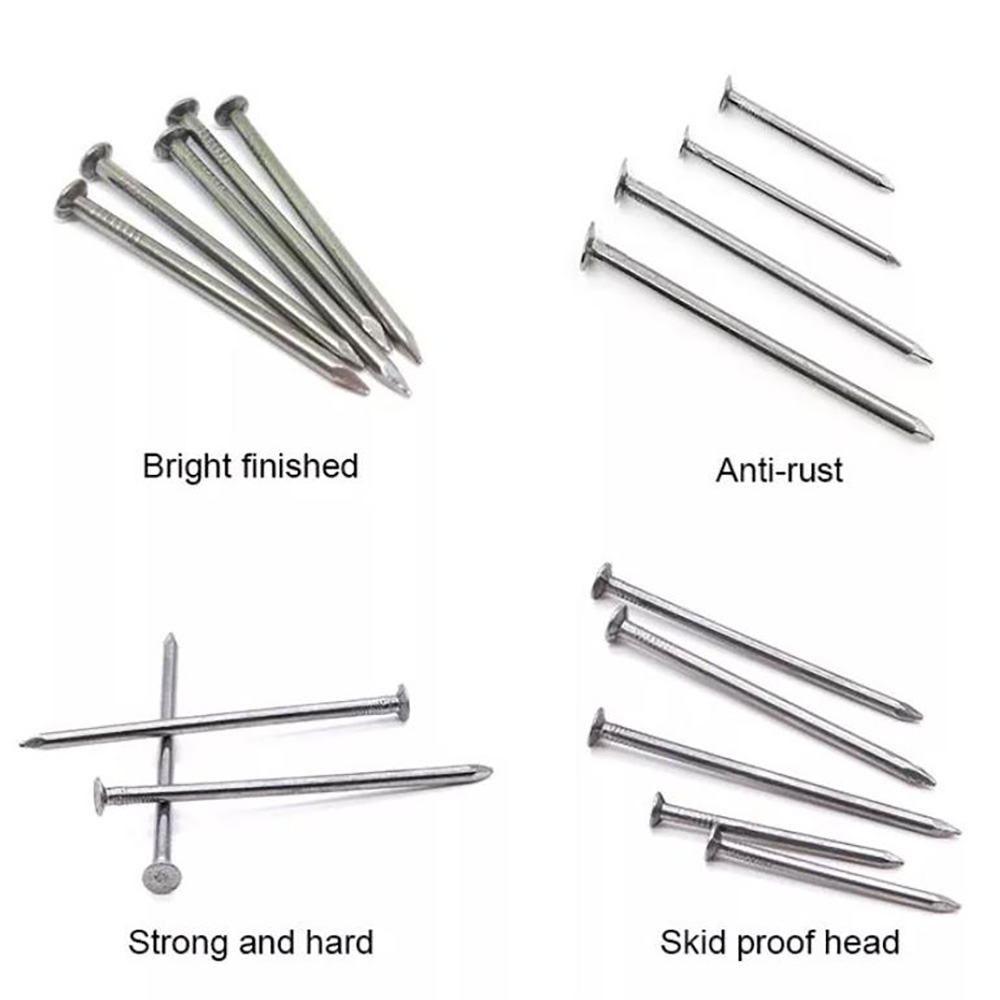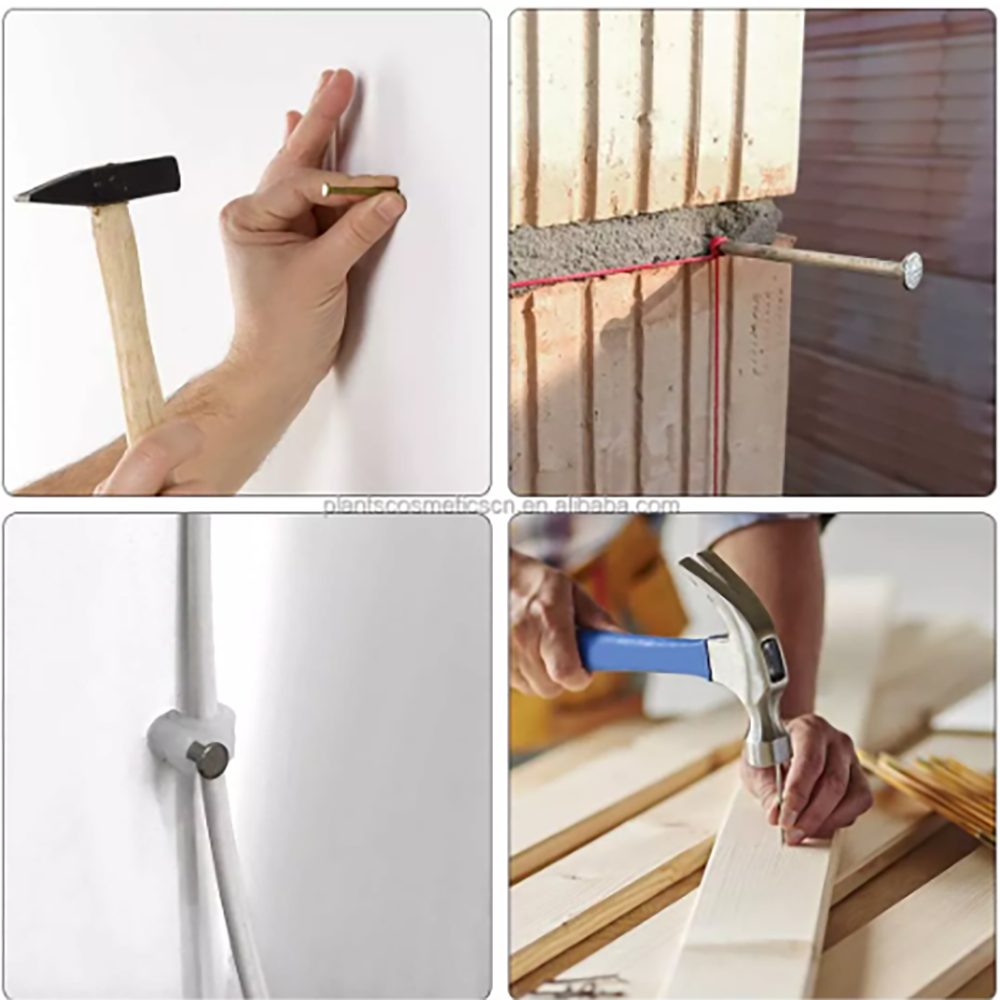Common Nails - Anping County Honglin Wire Mesh Co.|Features, Applications
Introduction
Common nails are indispensable fasteners in the construction and carpentry industries. These durable steel nails are engineered for strength and versatility, making them a staple in both professional and DIY projects. Manufactured from high-quality materials, common nails ensure structural integrity in a wide range of applications, from framing to furniture assembly. This article delves into the features, technical specifications, applications, and company background of common nails, while incorporating authoritative insights from the National Institute of Standards and Technology (NIST).

Key Features of Common Nails
Common nails are distinguished by their robust design and adaptability. Here are the core features that set them apart:
- Simple Construction: The straightforward design of common nails ensures ease of use in various projects. [Product Page]
- Firm Structure: Made from high-quality steel, these nails provide exceptional strength to hold materials securely.
- Economical and Versatile: Available in multiple sizes and finishes, common nails cater to diverse construction needs without compromising cost-effectiveness.
- Long Service Life: With proper installation, common nails offer durability and resistance to corrosion, ensuring longevity in both indoor and outdoor applications.

Technical Specifications
The technical parameters of common nails are critical for understanding their performance and suitability for specific tasks. Below is a detailed specification table:
| Parameter | Details |
|---|---|
| Material | Low carbon steel (Q195, Q215, Q235) |
| Length | 1 inch (25 mm) to 6 inches (152 mm) |
| Diameter | BWG 5–18 |
| Finish | Polished, Electro Galvanized (E.G.), Hot Dipped Galvanized (H.D.G.) |
| Head Type | Large, flat head for increased holding power |
| Shank Type | Smooth or barbed for enhanced grip |
| Point Type | Diamond point for easy penetration |

Applications of Common Nails
Common nails are widely used across various industries due to their versatility and reliability. Key applications include:
- Construction: Ideal for framing wooden structures such as houses, decks, and fences. [Product Page]
- Carpentry: Used to attach drywall to wood frames and craft furniture and cabinetry.
- Woodworking: Suitable for general repairs and DIY projects, including assembling wooden components.
- Roofing: Common roofing nails are specifically designed for securing roofing materials. [Product Page]

Product Packaging and Customization
The packaging of common nails is designed to ensure safe transportation and easy handling. Standard packaging options include:
- 10/20/25 kg/bulk carton
- 1 kg/plastic bag, 10/25 bags/carton
- 5 kg or 1 kg/box, then in cartons
For specific requirements, the company offers custom packaging solutions, including branded packaging and retail display designs. [Product Page]

Company Background: Anping County Honglin Wire Mesh Co., Ltd.
With over 20 years of experience in manufacturing galvanized wire and wire mesh, Anping County Honglin Wire Mesh Co., Ltd. has established itself as a trusted supplier in the industry. The company began exporting in 2008 and has since expanded its reach globally. Their commitment to quality and innovation ensures that their products meet international standards. [Company Page]

Frequently Asked Questions (FAQ)
- Are you a manufacturer or a trader? We are a manufacturer with over 20 years of experience in producing galvanized wire and wire mesh. [Product Page]
- How to make an inquiry? Provide material, length, width, wire diameter, mesh size, and quantity. Special requirements can also be specified.
- What is the lead time? Lead time varies based on order quantity and season, typically 15–35 days (excluding shipping time).
- Payment terms: T/T 30% deposit, balance against B/L copy; also accepts 100% LC at sight.
- Minimum Order Quantity (MOQ): 2MT per size, with FCL and LCL shipments accepted.
- Sample availability: Free samples are available, but the buyer covers freight costs.
- Response time: Replies within 12 hours of receiving an inquiry.

Industry Standards and NIST Insights
The National Institute of Standards and Technology (NIST) plays a pivotal role in establishing measurement standards for construction materials. While NIST does not directly regulate nail specifications, its research on material durability and structural integrity provides valuable context for understanding the performance of common nails. According to NIST guidelines, the [NIST Website], the strength and corrosion resistance of fasteners are critical factors in ensuring the safety and longevity of structures. This aligns with the design principles of common nails, which are engineered to withstand environmental stressors and maintain structural stability.

Conclusion
Common nails are a cornerstone of construction and carpentry, offering a blend of strength, versatility, and cost-effectiveness. Their technical specifications, combined with the expertise of manufacturers like Anping County Honglin Wire Mesh Co., Ltd., ensure that they meet the demands of modern projects. By adhering to industry standards and leveraging insights from organizations like NIST, these fasteners continue to play a vital role in shaping the built environment.
References
NIST Citation: National Institute of Standards and Technology (NIST). "Standards and Measurements." https://www.nist.gov. Retrieved [Insert Date].
-
Innovations in Razor Barbed Wire Design TechnologyNewsAug.11,2025
-
Roofing Nail Compatibility with Different Metal Roof TypesNewsAug.11,2025
-
Welded Wire Mesh for Rockfall Protection BarriersNewsAug.11,2025
-
Galvanized Wire Corrosion Resistance TestingNewsAug.11,2025
-
3D Fence Solutions Preventing Bird CollisionsNewsAug.11,2025
-
Using Chain Link Fence for Urban Garden SupportNewsAug.11,2025




